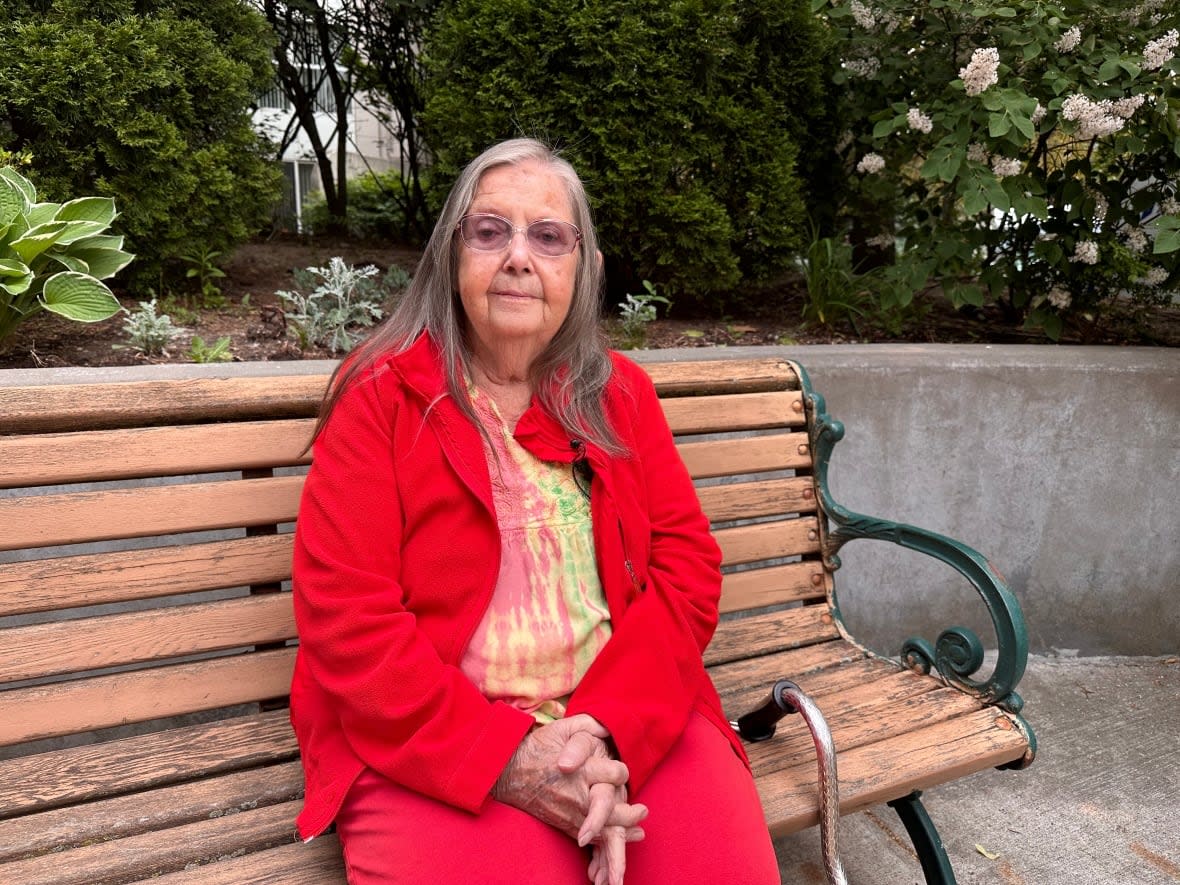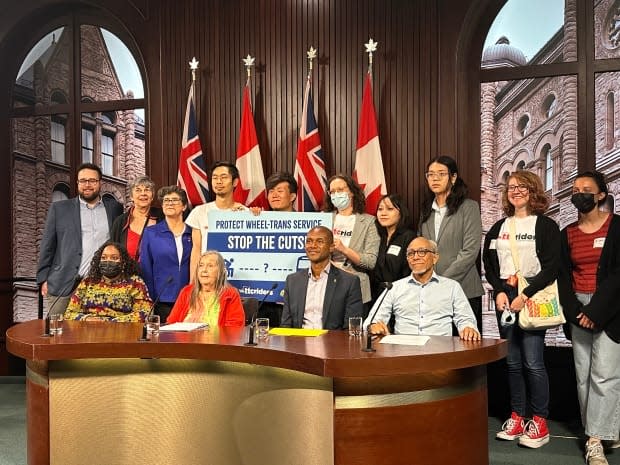TTC customers with disabilities, advocates call for province to help expand Wheel-Trans

Residents with disabilities, advocates and a Toronto city councillor are calling on the province to help the TTC expand its Wheel-Trans program, in a bid to stop its plan to divert half of its existing customers onto its conventional transit system.
Scarborough North coun. Jamaal Myers, who's also the chair of the Toronto Accessibility Advisory Committee, says he's concerned over the lack of expanded funding from the provincial government needed to support the increase in Wheel-Trans use over the years.
"If these conventional services were already adequate, members of the disabled community would be using them," said Myers at a press conference Monday.
"I'm urging the provincial government to come to the table and work with the city to provide the necessary funding to ensure that those who are living with disabilities are able to get around our city with fewer barriers and inconveniences, and with dignity."
Critics have been sounding the alarm since 2016, when the TTC first detailed its plan to divert at least half of customers on its conventional bus, streetcar and subway system by 2025.
Advocacy group TTCriders, alongside groups like Toronto Seniors' Forum, and Centre for Independent Living, say they're concerned the move will leave thousands of seniors who depend on the service at risk of injury, making do with trips double or triple the time it would normally take, and opting to forgo public transit entirely.
"We transit users need choice, just like people who voluntarily use the TTC. Using conventional TTC service should be voluntary, not mandatory, and determined by real trends," said David Meyers, a senior manager at the Centre for Independent Living in Toronto.
Hamilton MPP and the NDP critic for Accessibility and Disability Justice Sarah Jama criticized Premier Doug Ford's government's use of the Family of Services model, asking if it would repeal it and "get back to meeting Accessibility for Ontarians with Disabilities Act (AODA) targets."
In response, MP and Minister for Seniors and Accessibility Raymond Sung Joon Cho said the province has already given $185 million to the city this year to help operate and improve its transit.
"We encourage all local organizations to work with the advocates to support the unique needs of their community, and to live up to what the AODA is meant [to do]," said Cho.
In an email to CBC Toronto, his office later added the province had "no role in this" operational decision made by the TTC.
TTC says no Wheel-Trans users will 'ever be denied'
In recent months, thousands of customers who signed up for Wheel-Trans before 2017 have been receiving notifications to re-register for the service by outlining their disability and getting a doctor to fill out a portion of the forms — something advocates and critics have called "long, tedious, and anxiety-inducing."
The TTC has said more than 8,000 Wheel-Trans customers have re-registered, and around 11,000 customers are still going through the process.

In a response to the calls, the TTC defended its Family of Services program Monday, saying the non-mandatory service gives customers with conditional status more "flexibility" for trips, and that 30 per cent of current Wheel-Trans customers already choose to travel completely on buses, streetcars and subways without scheduling trips on Wheel-Trans.
"Conversely, when the conditions of their disability creates barriers to travelling on the conventional TTC, conditionally eligible customers will always be able to travel door-to-door on Wheel-Trans," said spokesperson Stuart Green.
"No one who qualifies for Wheel-Trans will ever be denied door-to-door service when they require it."
To be in line with provincial legislation, Green says the TTC must offer alternative accessible modes of transportation for people within three categories of eligibility: unconditional, conditional and temporary. Only the unconditional classification gives someone on-going access to on-demand transit.
He adds similar programs already exist in other jurisdictions across the GTA, and that while it's not a key driver to the program, it helps cut down on costs as the demand for accessible transit services grows.
"Utilizing fixed routes conventional service whenever possible makes sense," said Green.
Jane Rowan, with Toronto Seniors' Forum, has been a Wheel-Trans customer since 2017. As a senior who uses a cane, she says the on-demand transit service has been an essential part of how she travels across the city.
She's been given "conditional" status, meaning she's offered on-demand services as well as a mix of streetcar, bus and subway options when booking a trip. She says she's been denied on-demand Wheel-Trans service multiple times — with the most recent Monday afternoon.
"We're really getting forced to use Family of Services. It's not exactly convenient and it causes great difficulty for someone like me," said Rowan, adding the move makes her feel "unappreciated."
When she does take conventional transit, she says she often has difficulty finding a seat and walk long distances to her next spot or pick-up. She wasn't successful in her appeal of the classification, but hopes raising awareness on the issue can help other seniors from being put in the same boat.
"It feels like society has said, 'Oh, you don't need this,' ... Surely, I've earned this over 79 years."


